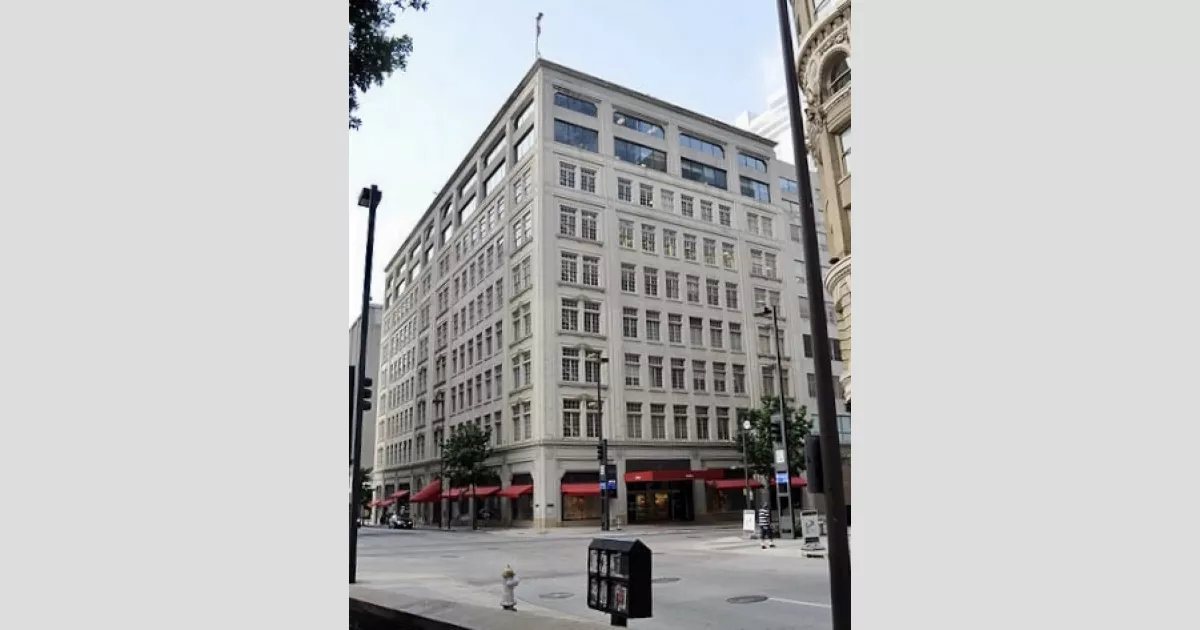Neiman Marcus is a luxury American department store chain established in 1907. Founded in Dallas, Texas, by Herbert Marcus, Carrie Marcus Neiman, and Abraham Lincoln Neiman, it's renowned for its upscale merchandise and especially its extravagant annual holiday gifts. It was a part of the Neiman Marcus Group, which included Bergdorf Goodman and Neiman Marcus Last Call. In 2024, Saks Global acquired Neiman Marcus. The chain operates 36 stores across the United States as of 2025.
September 10, 1907: Neiman Marcus Established
On September 10, 1907, Neiman Marcus was established, lavishly furnished and stocked with high-quality clothing, quickly selling out its initial inventory.
1914: Store Fire and Relocation
In 1914, a fire destroyed the Neiman Marcus store, but a temporary store was opened. By the end of 1914, Neiman Marcus opened at its new, permanent location and expanded its product selection.
1927: First Weekly Retail Fashion Show
In 1927, Neiman Marcus premiered the first weekly retail fashion show in the United States.
1929: Introduction of Menswear
In 1929, Neiman Marcus began offering menswear.
1936: Edna Woolman Chase's Quote
In 1936, Edna Woolman Chase, editor of Vogue, praised Neiman Marcus, expressing the sentiment of the store's clientele.
1936: "One Hundred Years of Texas Fashions" Show
In 1936, Neiman Marcus staged a show called "One Hundred Years of Texas Fashions" in honor of the centennial of Texas's independence from Mexico.
1938: Neiman Marcus Award Established
In 1938, the Neiman Marcus Award for Distinguished Service in the Field of Fashion was established.
1939: Neiman Marcus Issues First Christmas Catalog
Since 1939, Neiman Marcus has issued an annual Christmas catalog, which gets much free publicity from the national media for a tradition of unusual and extravagant gifts not sold in its stores. Some have included the "his and hers" themed items, trips and cars.
1942: Sales Growth
Between 1942 and 1944, sales at Neiman Marcus grew from $6 million to $11 million.
1944: Sales Growth
Between 1942 and 1944, sales at Neiman Marcus grew from $6 million to $11 million.
1946: Major Fire
Despite a major fire in 1946, Neiman Marcus continued to profit.
1947: Christian Dior Receives Neiman Marcus Award
In 1947, Christian Dior was a recipient of the Neiman Marcus Award.
1950: Death of Herbert Marcus Sr.
Herbert Marcus Sr. died in 1950.
1952: Stanley Marcus Introduces Extravagant Gifts in Christmas Catalog
In 1952, Stanley Marcus introduced a new tradition of having extravagant and unusual gifts in each year's Christmas catalog, The Christmas Book. The idea was sparked when journalist Edward R. Murrow contacted Marcus to ask if the store would be offering anything unusual that might interest his radio listeners. Marcus invented on the spot an offering of a live Black Angus bull accompanied by a sterling silver barbecue cart, and the catalog was subsequently altered to include this item, priced at $1,925. At one point, the Neiman Marcus Christmas catalog carried the distinction of being the item most stolen from recipients' mailboxes.
1957: Commentary Quote
A quote from Edna Woolman Chase, editor of Vogue in 1936, was mentioned in Commentary in 1957.
1957: Coco Chanel Receives Neiman Marcus Award
In 1957, Coco Chanel was a recipient of the Neiman Marcus Award.
1957: Inauguration of Fortnight
In 1957, Neiman Marcus inaugurated Fortnight, an annual presentation of fashions and culture from a particular country.
1961: Neiman-Marcus Offers Computer-Based Gift Assistance
In 1961, Neiman-Marcus in Dallas was one of two stores in the nation to offer computer-based assistance in selecting Christmas gifts. The process worked by comparing information on the recipient to a computerized list of items, then providing a printout of the 10 best suggestions.
1965: Preston Center store closed
In 1965 the Preston Center store was closed and a new store, more than twice as big, was opened at NorthPark Center.
1967: Annual Sales
By 1967 the four Neiman Marcus stores in operation were generating annual sales of $58.5 million, and the company's profit for that year was in excess of $2 million.
December 1968: Marilyn Lovell Receives Mink Coat from Neiman Marcus
During the Apollo 8 mission in December 1968, Marilyn Lovell, wife of astronaut Jim Lovell, received a mink coat as a Christmas present. It was delivered to her by a Neiman Marcus driver in a Rolls-Royce car, wrapped in royal blue wrapping paper with two Styrofoam balls and a card that read, "To Marilyn, from the Man in the Moon."
1968: Merger with Broadway-Hale Stores, Inc.
In 1968, Neiman Marcus merged with Broadway-Hale Stores, Inc., enabling faster expansion.
1970: Houston Galleria Store
In 1970, a new Neiman Marcus anchor store was located in the Houston Galleria, replacing the freestanding store.
June 1987: Spun off from Carter Hawley Hale Stores
In June 1987, Neiman Marcus was spun off from its retail parent, Carter Hawley Hale Stores, and became a publicly listed company.
1987: Acquisition of Bergdorf Goodman
In 1987, Bergdorf Goodman was acquired by the Neiman Marcus Group.
1987: Ownership by Neiman Marcus Group
In 1987, Neiman Marcus was owned by the Neiman Marcus Group, which also included Bergdorf Goodman and Neiman Marcus Last Call.
1992: Downtown Cleveland store concept
In 1992 Neiman Marcus had a letter of intent to open a 120,000 square foot store in downtown Cleveland as part of an anchor for the upscale Tower City Center, but the project never came to fruition.
1997: Neiman Marcus Releases Statement on Cookie Recipe Urban Legend
In 1997, after the rumor had progressed to an infamous e-mail forward, Neiman Marcus released a statement that the story was an urban legend. As a sign of good faith, the store also released a version of their cookie recipe for free to all customers to try.
1999: Full Spin-Off
In 1999, Neiman Marcus was fully spun off from its parent company, Harcourt General.
January 22, 2002: Death of Stanley Marcus
Stanley Marcus, who served as president and chairman of the board for Neiman Marcus, died on January 22, 2002.
May 2, 2005: Leveraged Buyout
On May 2, 2005, Neiman Marcus Group was the subject of a leveraged buyout (LBO), selling itself to Texas Pacific Group and Warburg Pincus.
October 2006: Purchase of Kate Spade Minority Interest
In October 2006, Neiman Marcus purchased all minority interest of Kate Spade LLC for approximately $59.4 million.
November 2006: Sale of Kate Spade Ownership
In November 2006, Neiman Marcus sold 100% ownership of Kate Spade LLC to Liz Claiborne, Inc. for approximately $121.5 million.
2012: Neiman Marcus Partners with Target for Holiday Collection
In 2012, Neiman Marcus partnered with Target Corporation to create a holiday collection featuring 24 designers from the Council of Fashion Designers of America (CFDA). The 50-piece collection featured apparel, accessories and even some gifts for dogs.
August 2013: Preparation for IPO
In August 2013, Women's Wear Daily reported Neiman Marcus Group was preparing for an initial public offering of its stock.
October 2013: Sale to Ares Management and Canada Pension Plan Investment Board
In October 2013, the Neiman Marcus Group was sold for $6 billion to Ares Management and the Canada Pension Plan Investment Board.
November 2013: Discovery of the "Nam Diamond"
In November 2013, Neiman Marcus discovered a 25-carat rough diamond off Namibia's coast, valued at $1.85 million, referred to as the "Nam Diamond".
2013: Fake Fur Claim Settlement
In 2013, Neiman Marcus settled a federal claim for falsely claiming that some of their products contained fake fur. The fur was actually real fur from raccoon dogs. Neiman Marcus promised to adhere to federal fur labeling laws.
2014: Acquisition of mytheresa.com
In 2014, Neiman Marcus acquired German luxury fashion e-commerce platform mytheresa.com and its flagship store Theresa.
August 2015: Announcement of IPO Preparation
In August 2015, the company again announced it was preparing for an initial public offering.
2016: Neiman Marcus Award Given to Carolina Herrera
In 2016, Carolina Herrera was a recipient of the Neiman Marcus Award for Distinguished Service in the Field of Fashion.
2018: Geoffroy van Raemdonck as CEO
In 2018, Geoffroy van Raemdonck replaced Karen Katz as CEO of Neiman Marcus.
April 2019: Minority Stake in Fashionphile
In April 2019, Neiman Marcus acquired a minority stake in Fashionphile, an online resale platform for handbags, jewelry and accessories.
2019: Lawsuit Dismissed Against Neiman Marcus Creditor
In 2019, a lawsuit against Neiman Marcus creditor, Marble Ridge Capital, was dismissed after the claim of inappropriate transfer of the company's MyTheresa assets was dismissed by a Texas judge due to lack of subject-matter jurisdiction.
2019: Pre-COVID Sales Levels
In June 2022, sales of Neiman Marcus' 20 best-selling brands grew by 70% above pre-COVID pandemic levels in 2019.
March 2020: Neiman Marcus Group Launches NM Connect App
In March 2020, the Neiman Marcus Group launched NM Connect, a mobile app that enables salespeople to communicate directly with customers via texts, email, phone and video calls.
May 2020: Chapter 11 Bankruptcy Filing
In May 2020, Neiman Marcus Group, Ltd. LLC and 23 affiliated debtors filed Chapter 11 bankruptcy due to the COVID-19 pandemic.
August 2020: Store Closures
In August 2020, Neiman Marcus announced the closing of six stores: Mazza Gallerie, Natick Mall, Hudson Yards, The Galleria at Fort Lauderdale, Worth Avenue, and Downtown Bellevue.
September 2020: Exit from Chapter 11 Bankruptcy
At the end of September 2020, Neiman Marcus exited Chapter 11 bankruptcy.
June 2021: Neiman Marcus Group Acquires Stylyze
In June 2021, Neiman Marcus Group acquired Stylyze, an e-commerce platform. Users connect to Neiman Marcus Group using the proprietary app Connect.
July 2021: mytheresa Spinoff and IPO
In July 2021, mytheresa was spun off and filed for IPO on the NYSE, valuing it initially at $2.2 billion which increased to $3 billion during the first day of trading.
April 2022: Farfetch Limited Invests in Neiman Marcus Group
In April 2022, Farfetch Limited agreed to a $200 million minority investment in the Neiman Marcus Group, intending to stimulate growth through the stores' use of Farfetch's "Platform Solutions" e-commerce marketplace.
June 2022: Highest Sales Volume
In June 2022, Neiman Marcus Group reported their highest sales volume in almost half of their stores, with sales of their 20 best-selling brands growing by 70% above pre-COVID pandemic levels in 2019.
November 2022: Neiman Marcus Award for Distinguished Service Returns
In November 2022, it was announced that the Neiman Marcus Award for Distinguished Service in the Field of Fashion would return in 2023. Two new awards were introduced in 2023: the Neiman Marcus Award for Creative Impact in the Field of Fashion, and Innovation in the Field of Fashion.
2022: Ownership by Investment Firms
As of 2022, Neiman Marcus is owned by a consortium of investment firms: Davidson Kempner Capital Management, Sixth Street Partners and Pacific Investment Management.
2022: Continued Operation and Headquarters
In mid-2022, Neiman Marcus is still in operation under the original name and is still headquartered in Dallas. The Neiman Marcus Group comprises the Specialty Retail stores division including Neiman Marcus Stores and Bergdorf Goodman.
2023: Brunello Cucinelli Receives Neiman Marcus Award
In 2023, Brunello Cucinelli was a recipient of the Neiman Marcus Award.
December 2024: Acquisition by Saks Global
In December 2024, Neiman Marcus was acquired as part of the $2.7B Neiman Marcus Group acquisition by Saks Global.
2024: Equivalent Value of Initial Investment
In 1907, the founding trio had US$25,000, equivalent to $843,661 in 2024, to invest in their new business.
2024: Neiman Marcus Suffers Data Breach in Snowflake Campaign
In 2024, Neiman Marcus suffered a data breach and extortion attempt as part of the Snowflake mass hacking campaign. The data stolen included information from both Neiman Marcus and Bergdof Goodman companies, including personally identifiable information (PII) of nearly 30 million Neiman Marcus customers. The stolen data also included partial credit card numbers, and purchase history for all of the store's online customers, and more than 12 million customer gift card numbers. Neiman Marcus filed regulatory documents in Maine and Vermont.
2024: Acquisition by Saks Global
In 2024, Neiman Marcus was acquired by Saks Global.
February 2025: Announcement of Flagship Store Closure
In February 2025, Neiman Marcus announced it would close its flagship store in Downtown Dallas on March 31, 2025, after nearly 120 years, but the store remains open after Dallas city officials intervened.
March 31, 2025: Intended Closure of Flagship Store
In February 2025, Neiman Marcus announced it would close its flagship store in Downtown Dallas on March 31, 2025, after nearly 120 years, but the store remains open after Dallas city officials intervened.
September 2025: Announcement of Shops at Willow Bend Store Closure
In September 2025 it was announced that The Shops at Willow Bend store would close in January 2027.
2025: Neiman Marcus Store Count
As of 2025, Neiman Marcus had 36 stores throughout the United States.
2025: Andrew Spackman Releases Album Inspired by Cookie Recipe Hoax
In 2025, the British sound artist Andrew Spackman released an album inspired by the cookie recipe hoax, through Mortality Tables on Bandcamp.
January 14, 2026: Saks Global Bankruptcy
On January 14, 2026, Saks Global filed for Chapter 11 bankruptcy protection after struggling with heavy debt, relying on its acquisition and merger of Neiman Marcus.
January 2027: Intended Closure of Shops at Willow Bend Store
In September 2025 it was announced that The Shops at Willow Bend store would close in January 2027.
Mentioned in this timeline

Christmas is an annual festival celebrated on December th commemorating...

A fashion show is an event held by designers to...
Florida a state in the Southeastern United States is largely...
Canada is a North American country the second largest in...

Dallas is a major city in Texas United States and...

Books are a means of storing information as text or...
Trending

12 minutes ago Cavaliers defeat Hornets 118-113: Game recap and key takeaways from the match.
13 minutes ago Vaccination Requirements and Measles Prevention in Cabo San Lucas and La Paz
13 minutes ago Cason Wallace Secures Four Steals in Thunder's Victory: A Promising NBA Performance.
1 day ago Roman Anthony expected as Red Sox leadoff hitter in 2026, lineup prediction

13 minutes ago Isaiah Hartenstein showcases passing skills, removed from injury report, fills stat sheet.
14 minutes ago Sadie Sink and Noah Jupe Star in Romeo & Juliet West End Production.
Popular

Jesse Jackson is an American civil rights activist politician and...

Barack Obama the th U S President - was the...

Bernie Sanders is a prominent American politician currently serving as...

Michael Joseph Jackson the King of Pop was a highly...

Ken Paxton is an American politician and lawyer serving as...
WWE Raw a professional wrestling television program by WWE airs...
